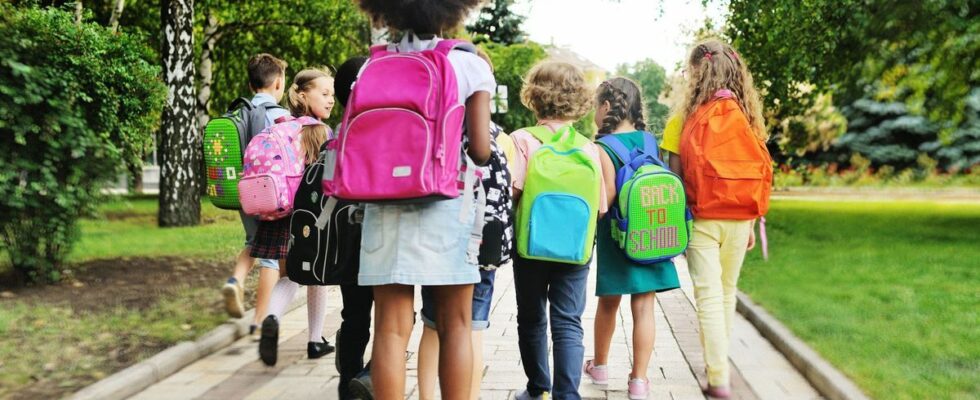Published on
updated on
Reading 2 min.
Students born at the beginning of the year are “significantly” advantaged at school compared to those born at the end of the year, according to an INSEE study published on Monday, the first day of the school year.
“Being older than peers at school entry significantly increases performance in the academic subjects measured (reading, mathematics and science)“, indicates this study based on the results of three waves of Pisa exams carried out in 15 countries on 15-year-old students.
Although the impact of the month of birth on academic results is observed in all countries, it is nevertheless variable. In France, it is on average less significant than in the others.
It also remains much less important than the effect of the social background of origin: in 2022, the 25% of the most advantaged French students have on average a score in mathematics 112.5 points higher than that of the 25% of the least advantaged students. Knowing that the average score of the French was 474 in mathematics that year.
The results of the Pisa tests, between 2015 and 2022, were studied by INSEE (National Institute of Statistics and Economic Studies) based on the age of the students when they entered CP, and not according to the class they were in at the time of the test. Depending on their month of birth, students could be up to almost a year apart in CP.
Thus, being one year older when entering CP increases the Pisa score by an average of 18.2 points in mathematics, 18.4 points in science and 20.6 points in reading for French students, a difference “of the same order as the progression observed during a year of study“.
According to INSEE, this can be explained by “cumulative effects”: a pupil who is older when they start primary school will on average have more academic facilities at the start, and therefore more chance of being considered a good pupil and of benefiting from encouraging dynamics.
This effect “questions the ability of the education system to manage the heterogeneity of students“, notes the study, which also observes a gap in repeats.
According to Pisa data, students born at the end of the year also more frequently report having been victims of bullying. While the study does not provide an explanation, it does hypothesize that they may more frequently have “physical or social characteristics, such as greater shyness or less self-confidence, which make them more exposed to harassment“.
